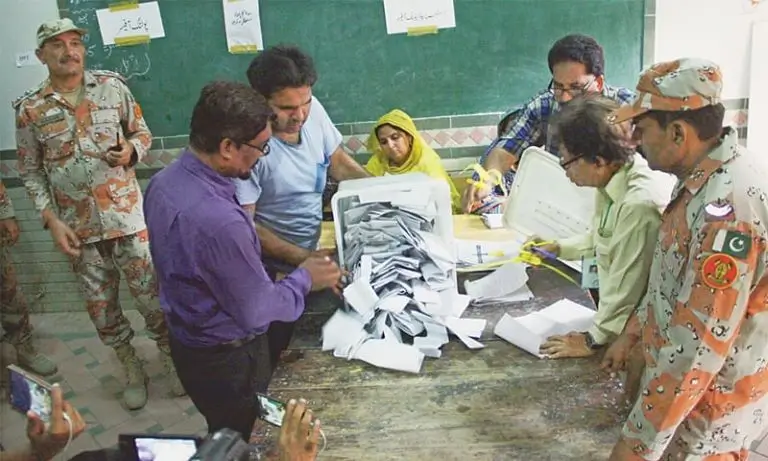Fair elections entail various rights, including the freedom to participate independently, the right to vote for all citizens, including women and children, the right to be represented at election rallies, the right to participate in political debate and engage in political discussion, the right to freely associate with other voters, the right to have an equal say and express oneself, and the right to freely receive information about candidates and electoral systems. The constitution of Pakistan guarantees these rights and safeguards them by providing specific mechanisms for their exercise.
In order to guarantee the protection of these rights, there must be a mechanism in place that ensures the fair conduct of elections. This includes ensuring that all eligible voters can exercise their voting rights. It also ensures that there is adequate and accurate information on electoral rolls to ensure transparency and accountability. However, since there are no laws or legal provisions in this respect in Pakistan, it is essential to enforce these rights through civil society organizations and international bodies. These laws and regulations should be enforced with utmost fairness and impartiality.
The case study of the current election in Pakistan reveals several violations of human rights associated with the election process. The first violation occurred when voters were not allowed to properly prepare before casting their votes. Although there was enough time for everyone to get prepared, as the voter turnout was high, they still had to wait outside in heavy rain for over three hours just to cast their votes. Another violation was the lack of security at polling stations. There were no police officers present at most polling stations, making it difficult for people to exercise their fundamental rights. As many people were already disenfranchised from the government, they had no choice but to go to the polls. Lastly, the authorities did allow some people who were not eligible to vote to come to the polling station to cast their votes.
According to Amnesty International, the authorities are responsible for denying basic human needs to millions of people in Pakistan. They also violate numerous human rights, such as freedom of expression and association, political freedom, and access to justice. For instance, they censor journalists, limit social media freedoms, and restrict assembly rights. All these actions show the authorities’ disregard for basic human rights.
In addition to these violations, the authorities also violated the right to participate in political debate and engage in political dialogue. According to Human Rights Watch, the authorities do not allow citizens to ask questions and discuss the issues that affect them directly or indirectly. Instead, they prefer to block discussion in public. The authorities also restrict the ability of citizens to voice their opinions in their assemblies and protests. This violates both the right to participate in political debate and the right to actively participate in political dialogue.
The authorities also violated the right to have an equal say. When the Pakistani Constitution came into effect, everyone was given an equal say in all matters. However, this has not been true in the past few years. The number of female representatives in Pakistani assemblies has decreased significantly; however, the government does not provide any specific laws to protect the rights of women. Similarly, the law provides for equality between men and women in areas such as education, health, and employment. Therefore, according to UNICEF, women and girls have fewer opportunities to speak up and advocate for their rights, including those related to education, employment, and healthcare.
In conclusion, the violation of human rights in Pakistan is unacceptable. People should fully exercise their voting rights, be treated with dignity and respect, and be provided with appropriate conditions to exercise their rights. If the current situation continues, it will lead to further deterioration of people’s lives and undermine the country’s democratic governance. It is necessary for the government to take steps to improve the rights of all citizens.

this is incredible. good job girl! <3 beautifully explained